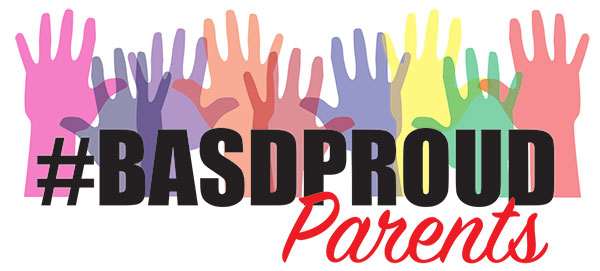ICYMI: PA’s 2019-2020 state budget is a wrap. Here is what is in it for public schools
A summary from our allies at Education Voters of PA
The state budget is done and a last-ditch effort made by anti-public education lawmakers to include harmful charter school legislation in the school code bill was defeated. Governor Wolf stood strong with our public schools and House Bill 357, which would have stripped control from local communities and exploded charter school expansion and costs, did not become part of a budget deal. Your phone calls and emails made an enormous difference. Thank you.
The 2019-2020 education budget in Pennsylvania is a compromise between the priorities of Governor Tom Wolf and Republican leaders, who control the PA House and Senate.
We were very disappointed that Republican leaders cut Governor Wolf’s proposed Basic Education Funding increase from $200 million to $160 million. We are grateful for the $160 million increase in Basic Education Funding, however, much greater state investments must be made to reduce pressure on property taxes and to help close the enormous funding gap between wealthy and poor schools in Pennsylvania that leaves hundreds of thousands of students behind.
Pennsylvania Republicans took a page from Betsy DeVos’s playbook in this budget by providing $30 million in additional funding for private/religious school tuition giveaways for well-off families through the Educational Improvement Tax Credit program (EITC) and Opportunity Scholarship Tax Credit (OSTC) programs.
With this budget, students in many school districts will continue to experience deep deprivation and taxpayers will see their property taxes increase even higher, while well-off families will receive $30 million more in taxpayer-funded giveaways to reduce their children’s private/religious school tuition bills.
The EITC program was intentionally designed to provide taxpayer-funded private/religious school tuition assistance to families that are well-off. And lawmakers raised the family income limit this year by $5000/family, so that now a family of four earning $121,000 qualifies for this giveaway.
A recent, excellent story from WHYY documents affirms that schools with NO low-income students receive substantial EITC funding. For example, YSC, a school for elite soccer prospects run by the Philadelphia Union, raised $339,046 for the 75 students who attend the school. It reported enrolling 0 low-income students.
Below we detail the good, bad, ugly, unconscionable and insulting in the final budget:
The Good
Republicans supported Governor Wolf’s proposed $50 million increase for special education and $10 million for career and technical education.
The Bad
This budget increases funding for a school safety grant program from Wolf’s proposed $45 million to $60 million. This might seem like it is good, but we are putting it in the “bad” category for two reasons.
-
If lawmakers have an additional $15 million in funding for education, it should be invested in basic education or special education funding instead of this grant program. Basic and special education funding benefit ALL school districts and are distributed in a way that benefits school districts that need funding the most.
-
This grant program provides one-time funding, so school districts cannot use this money to pay for recurring expenses. For example, school districts will not be able to use grant funding to hire a guidance counselor or social worker or nurse to help meet students’ mental health needs to increase school safety unless they are prepared to pay the salary of that individual in future years from local dollars.
Last year this grant program received $331 million in grant requests and awarded just $52.5 million in grant money, leaving enormous unmet needs in school districts that persist today. If lawmakers are serious about school safety, they need to be serious about providing the significant increases in RECURRING funding that to ensure school districts can pay for the mental health professionals and others schools need to keep children healthy and safe.
The Ugly
Republicans decreased Governor Wolf’s proposed increase in Basic Education Funding to $160 million.
The Unconscionable
The additional $25 million giveaway in taxpayer-funded private/religious school vouchers for well-off families through the Educational Improvement Tax Credit (EITC) program and an additional $5 million for the partner Opportunity Scholarship Tax Credit program (OSTC) that Republicans demanded in this budget are unacceptable. Funding for the private/religious school vouchers through the EITC and OSTC programs have increased nearly six-fold from $35.7 million in 2010-2011 to $210 million in 2018-2019. There have been no corresponding increases in fiscal or academic accountability, so taxpayers know virtually nothing about how more than $1 billion has been spent on these programs.
The Insulting
Budget drafters in the state House shifted existing funds ($476 million) from the School Employees’ Social Security line item to the Basic Education Funding line in this budget. We believe this will be used to present a misleading picture in the future in order to try to trick Pennsylvanians into believing that the legislature increased Basic Education Funding this year by more than $600 million instead of just $160 million.
We are very grateful to Governor Wolf for his strong support of public education as demonstrated by his prioritization of funding increases for public schools and his opposition to bad charter school legislation that would strip control from communities and explode charter school payments.
However, this compromise budget highlights that we have work to do if we want to ensure our elected officials will provide the PUBLIC school funding our students need and deserve. We’ll be working this summer to get ready to kick off strong advocacy efforts when students go back to school in the fall.
Thank you for your continued support of public education.
BASD Proud Parents is strictly pro-public education. We are an independent group with no affiliations to the BASD school board or any political parties. Our goals are to help parents stay informed about educational policy discussions and to facilitate ways for any of us who would like the chance to have our voices heard, to get more involved in those policy conversations.
